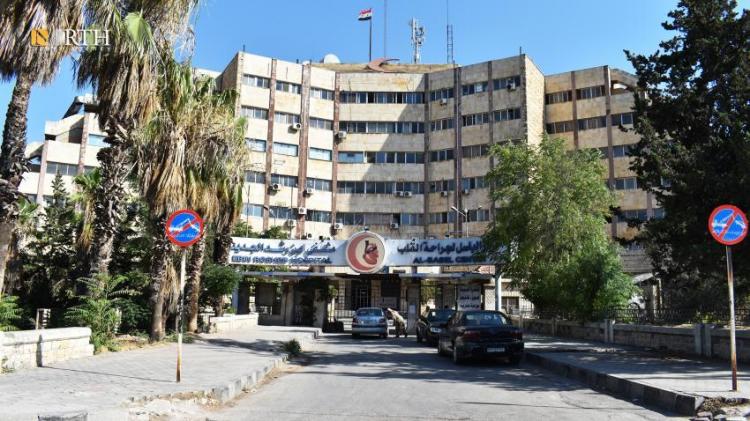Government hospitals in Syria’s Aleppo stop providing services; only receive coronavirus cases
ALEPPO, Syria (North Press) – A number of government hospitals in the city of Aleppo stopped providing their regular services to residents on Tuesday after they were transformed into reception centers for people infected with coronavirus, most of which are unable to carry out laboratory testing of suspected cases.
Informed sources told North Press that al-Razi, Ibn Roshd, and University hospitals stopped receiving patients without coronavirus.
Dr. Ma’an Dibba, director of al-Razi Hospital, told North Press that the hospital turned into a center to receive cases of infection with coronavirus, completely stopping regular services in order to avoid transmitting the infection to uninfected patients.
He added that government hospitals are unable to carry out medical tests due to the lack of necessary equipment to conduct the necessary examinations, attributing the reasons to the economic sanctions imposed on the Syrian government.
A medical source from a government hospital in Aleppo, who preferred not to be named, told North Press that about 10-15 people suspected of being infected with the virus visit the hospital daily, and they demand to be isolated for fear of transmitting the virus to their families.
“The hospital is unable to receive these people due to the severe shortage of beds and equipment,” the source added.
He pointed out that government hospitals are satisfied with checking the temperature of the patients amid a shortage of ventilators, as each hospital contains a maximum of six ventilators, and this number is not sufficient to assist all critical cases.
Coronavirus started spreading gradually in the city of Aleppo at the beginning of July, amid government secrecy about the truth and the weakness of the government health system in the face of the pandemic.
According to the official figures published by the Ministry of Health, Aleppo recorded 41 infections, one of whom died, while the total number of infections recorded in Syria is 847, 46 of whom died.
News about large numbers of infected people and deaths in Aleppo spread among civil circles and on social media platforms, concerning the local population.
A report published by North Press in July indicated that authorities prevent the media, including government media, from preparing reports on the health situation and tracking the pandemic.

